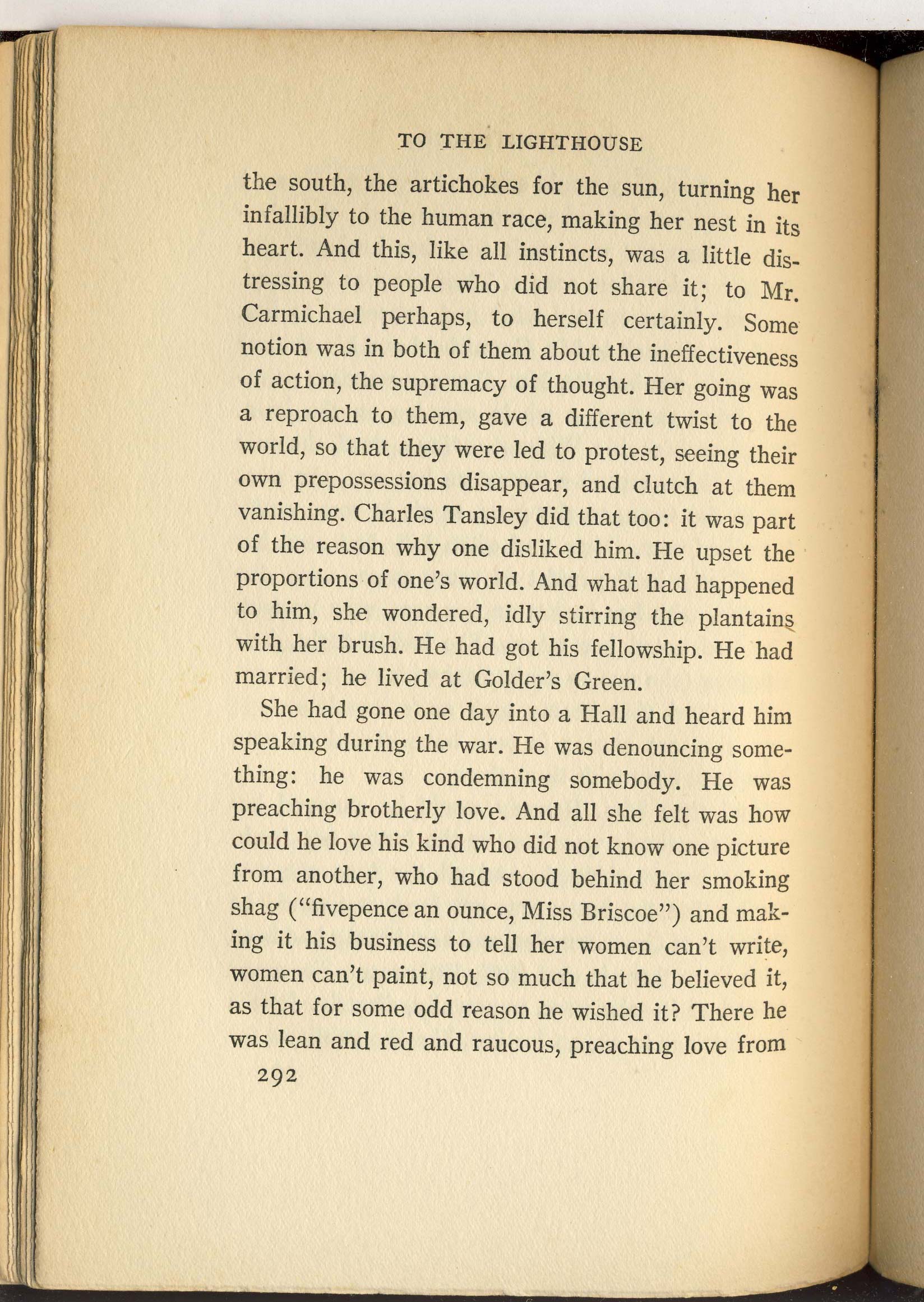
TO THE LIGHTHOUSEthe south, the artichokes for the sun, turning herinfallibly to the human race, making her nest in itsheart. And this, like all instincts, was a little dis-tressing to people who did not share it; to Mr.Carmichael perhaps, to herself certainly. Somenotion was in both of them about the ineffectivenessof action, the supremacy of thought. Her going wasa reproach to them, gave a different twist to theworld, so that they were led to protest, seeing theirown prepossessions disappear, and clutch at themvanishing. Charles Tansley did that too: it was partof the reason why one disliked him. He upset theproportions of one’s world. And what had happenedto him, she wondered, idly stirring the plantainswith her brush. He had got his fellowship. He hadmarried; he lived at Golder’s Green.She had gone one day into a Hall and heard himspeaking during the war. He was denouncing some-thing: he was condemning somebody. He waspreaching brotherly love. And all she felt was howcould he love his kind who did not know one picturefrom another, who had stood behind her smokingshag ("fivepence an ounce, Miss Briscoe") and mak-ing it his business to tell her women can’t write,women can’t paint, not so much that he believed it,as that for some odd reason he wished it? There hewas lean and red and raucous, preaching love from292









